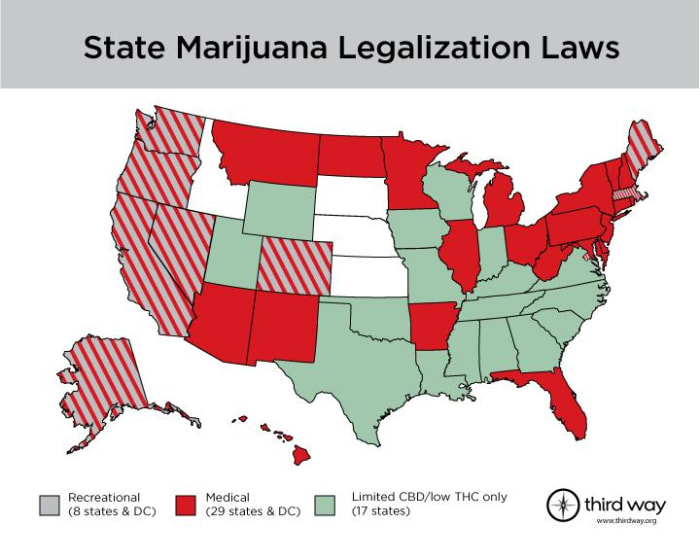
This is an opinion editorial by Dennis Porter, CEO of Satoshi Action Fund and political strategist who focuses on defending the US Bitcoin infrastructure and industry through public policy, activism and advocacy.
The printer of unlimited money and where that unlimited money is spent is the ultimate power of our day. The vast power of the federal government, including unlimited money in Washington, attracts many interest groups to our nation’s capital, but this is also exactly why Bitcoiners should choose a different strategy. Historically, a lot of political movement has taken place at the state and local level, but currently bitcoiners are leaning heavily into influencing policy at the federal level. I admit that in the past I have fallen for the brilliance of the federal government. For Bitcoin to succeed in the US, I think we need to focus more of our efforts on local politics. Not only is this a better political strategy, but it’s also in line with Bitcoin’s bottom-up, bottom-up design ethos. There is nothing more bottom-up than meeting with your local and state representatives to affect public policy. The rest of this piece will be used to explain the value of this approach. By the time you’re done reading, I hope you’ll be convinced to take action to positively impact your local community.
It’s been almost a year since the infrastructure bill passed, and since then, we as an industry have been very focused in Washington. For good reason; infrastructure bill forced us to pay attention as the world’s most powerful government began targeting the Bitcoin industry. Soon after, we collectively saw many Bitcoiners become politically active, with even some of Bitcoin’s most anti-government influencers launching their own political organizations and efforts to combat government overreach.
(source)
I began working overtime to build relationships with members of Congress. In a single year, I befriended more senators and members of Congress than in the first 30 years of my adult life, despite having a background in politics. Many relationships were forged since the infrastructure bill was announced, but not much has happened to advance Bitcoin policy. Incremental gains have occurred, but have been overwhelmed by moves in the wrong direction.
The positive results have been extremely mild compared to the efforts in Washington and there is a reason for that. As I mentioned earlier, there are simply too many interest groups in the district. Bitcoin may be popular in the news and on Twitter, but our ability to lobby properly pales in comparison to the military industrial complex or the medical industry, for example. We’re just not big enough. For reference, the entire cryptocurrency universe (including Coinbase) spent nearly $9 million in 2021 on political lobbying efforts, while the healthcare industry spent more than $625 million that same year. All in all, done $3.7 billion was spent in all major industries. At $9 million, that puts the entire cryptocurrency space at 0.2% of all lobbying spending; we are a rounding error. I don’t say this to disappoint, but we need a reality check. I realized that we are simply not big enough to be really effective at the federal level despite the amount of attention we get in the news or on Twitter.
That said, efforts should not stop and I encourage those who have successfully built relationships in Washington DC to continue fighting for Bitcoin. Do not lose hope. There is cavalry coming to help bolster your efforts, and that cavalry is state and local politics. We are fortunate to live in a republic where the states have sovereign power; this gives American Bitcoiners a unique ability to let grassroots efforts rise from below, regardless of what happens at the federal level. Much has been done to weaken the ability of states to have an impact on the political process over the decades, but I believe there will be a renaissance of activity at the state level, and Bitcoiners have an opportunity to lead this movement .
As many of you know, this country is full of successful movements that have occurred and are occurring at the state and local levels. The simplest example of a state-level movement is marijuana. In 2012, two states (Washington and Colorado) became the first to legalize marijuana. Just 10 years later, there are now 39 states that have legalized medical and/or recreational marijuana within their borders, with five of the remaining 11 states voting for legalization in 2022.
(source)
This example is critical for bitcoiners to remember. It’s possible that in almost a decade, almost 90% of the US will have pro-marijuana legislation on their books at the state level; an incredible feat for any major policy issue, especially considering that possession of marijuana is still a federal crime. This demonstrates the power of the bottom-up approach that is only possible through the design of the structure of government in the US
This is the same approach that I believe Bitcoiners must adopt in order for us to succeed in our political endeavors. Another reason why local government is an attractive approach is that there is much less attention to local politics. Many elected state representatives work part-time and some are volunteers, which means they don’t have much help either. Local officials often care deeply about their state and really want to make a difference. A local official’s desire to make a difference, combined with a Bitcoiner’s enthusiasm to help, is a good mix. Many state houses also have less attention from those who want to curb Bitcoin.
Fewer enemies means fewer roadblocks, which means we can move much faster.
Many states are also much more willing to experiment with new policies, and once a state adopts a policy, it sets off a game-theoretic chain reaction where other states might begin to adopt the same or a similar policy. Many states simply copy and paste the policy of others in an effort to avoid competition, but it is also easier than proposing new concepts.
Like New York State Senator James Sanders said, “We don’t have to spend all our time creating the wheel, I’d rather perfect it.” In the case of marijuana legislation, not legalizing meant losing tax dollars and jobs. In the case of bitcoin mining, it means missing out on potential jobs, innovation and investment and not being able to improve the network infrastructure. Once a state moves in the right direction, lawmakers in other states will see the results and start looking for ways to improve them in their own state. Fortunately, we already have one state to look to for a road map to success for Bitcoin politics: Texas.
I think the next five years will be full of dramatic moves at the state level. These state-level efforts should concern us for three reasons, and we must seize the opportunity to move forward with them as soon as possible, while being mindful of an effort to form effective and long-lasting policy.
We have an opportunity to advance Bitcoin and Bitcoin mining through states that are ready and willing to move in the right direction. We can do it quickly and efficiently. If we do nothing, more states will be drawn to follow New York. It will hurt our efforts to activate later rather than earlier. If we get a large number of states to pass pro-Bitcoin (copy/paste) policy, especially mining policy, we can slow down or stop efforts at the federal level to make Bitcoin more difficult. adoption in the US and North America.
Call to action
I have told many of you to become much more active in politics and many of you have taken action. I see you. Once again I urge you to become more active, but this time: think local. Find your local state representative and ask them how you can help. Build relationships and tell them about their opportunity to adopt bitcoin mining as a way to strengthen your local economy. If you need help educating them, get in touch Satoshi Stock Fund or send me an email. Satoshi Action is a non-profit organization dedicated to educating policymakers and regulators about the benefits of Bitcoin and Bitcoin mining.
In closing, I believe that the next decade will be critical for bitcoin adoption, and the most effective way to improve that adoption from a nation-state perspective is to start at the local level. Remember that there was Bitcoin Beach (local level) long before there was bitcoin as legal tender in El Salvador (national level).
This is a guest post by Dennis Porter. The opinions expressed are entirely my own and do not necessarily reflect those of BTC Inc. or Bitcoin Magazine.
[ad_2]
Source link






